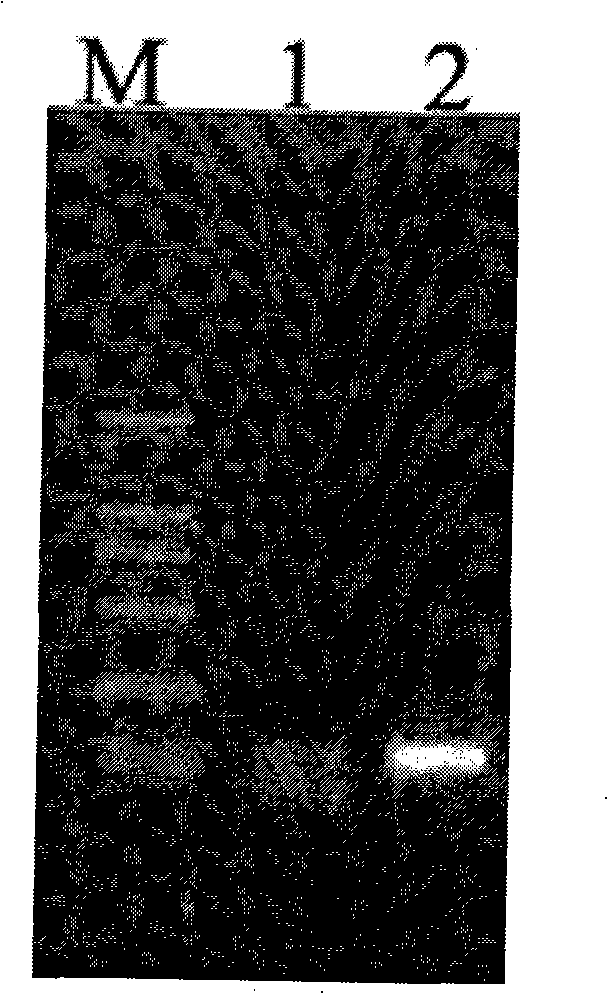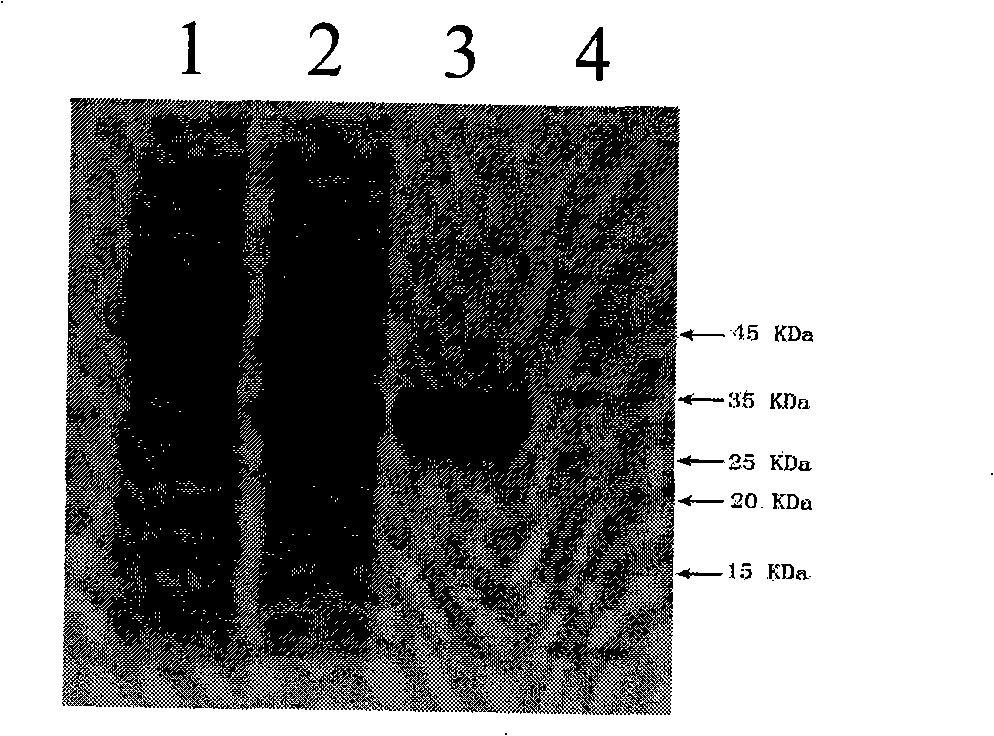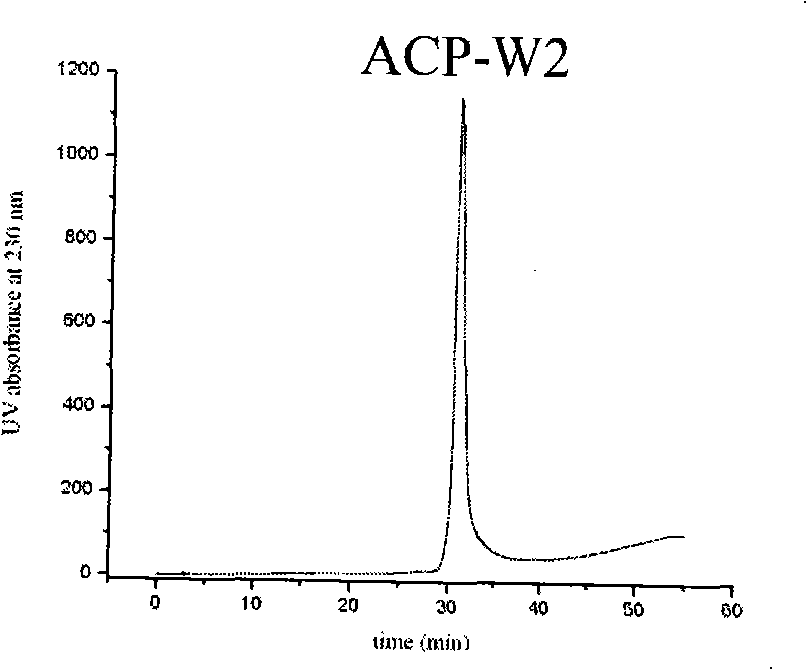Target glioma resistant protein, preparation method and application
A glioma and protein technology, applied in the fields of botanical equipment and methods, biochemical equipment and methods, anti-tumor drugs, etc., can solve the limitations of anti-glioma drug research and development, low protein expression, chlorine Problems such as low toxin production, to achieve the effect of inhibiting malignant proliferation and metastasis, with significant effect and high yield
- Summary
- Abstract
- Description
- Claims
- Application Information
AI Technical Summary
Problems solved by technology
Method used
Image
Examples
Embodiment 1
[0034] Example 1: Molecular design of W2 gene
[0035] Based on the reported amino acid sequence of scorpion chlorotoxin BmKCT (AF135821), the nucleotide sequence encoding the protein was deduced using conventional methods, while considering the codon bias of Escherichia coli. On this basis, primers were designed for PCR amplification to obtain the target gene W2. Forward primer P1: 5'GCGGATCCGTGCGGTCCGTGCTTCACCACC 3', primer P2: 5'GCAGCATTCACGGCATTTACGAGCCATGTTAGCGTCGGTGGTGAAGCA'; reverse primer P3: 5'TGCCGTGAATGCTGCGGTGGTATCGGTAAATGCTTCGGTCCGCCTTCAACGGCGACCC. Primer P2 and primer P3 are used for the first round of PCR amplification, and primer P1 and primer P4 are used for the second round of PCR amplification. The reagents for the first round of PCR reaction are as follows: mix 5 μl of 10xTaq polymerase buffer, 4 μl of dNTP mix, 1 μl of primer P2, 1 μl of primer P3, 0.25 μl of Taq DNA polymerase and 37.75 Mix in microliters of sterile water. PCR reaction conditions: pre-...
Embodiment 2
[0036] Embodiment 2: Construction of Acp-W2 protein recombinant expression vector
[0037] A: Double digestion and ligation of W2 and pGEX-6p-1
[0038] The PCR product obtained in Example 1 was extracted with phenol:chloroform:isoamyl alcohol (25:24:1), precipitated with absolute ethanol (2.5 volumes), and then dissolved with 50 μl of sterilized water. The recovered PCR product and expression vector pGEX-6p-1 plasmid were digested with restriction endonucleases BamHI and HindIII (products of Takara Company). Enzyme digestion reaction: BamHI (14U / μl) and HindIII (20U / μl) 1μl each, 10 times buffer 2.5μl, PCR product or pGEX-6p-1 plasmid 50-100ng, add sterile water to a total volume of 25μl . Water bath at 37°C for 5 hours, the digested product was extracted with phenol: chloroform: isoamyl alcohol, precipitated with absolute ethanol (2.5 volumes) and washed with T 4 The PCR product was ligated with the expression vector pGEX-6p-1 with DNA ligase (product of Takara Company). ...
Embodiment 3
[0045] Embodiment 3: the preparation of recombinant Acp-W2 genetically engineered bacteria
[0046] The positive clones sequenced correctly in step 2C of Example 2 were extracted by alkaline lysis method to extract the recombinant expression plasmid pGEX-Acp-W2 (see the second edition of "Molecular Cloning" for the method). The extracted pGEX-Acp-W2 plasmid was transformed into Escherichia coli competent Rossetta (DE3) cells prepared in the step of Example 2B according to the transformation method in the step of Example 2C. Tablet for LB / AP + Agar plates. Single clones were picked to obtain the genetically engineered strain Rossetta (DE3) (pGEX-Acp-W2).
PUM
 Login to View More
Login to View More Abstract
Description
Claims
Application Information
 Login to View More
Login to View More - R&D
- Intellectual Property
- Life Sciences
- Materials
- Tech Scout
- Unparalleled Data Quality
- Higher Quality Content
- 60% Fewer Hallucinations
Browse by: Latest US Patents, China's latest patents, Technical Efficacy Thesaurus, Application Domain, Technology Topic, Popular Technical Reports.
© 2025 PatSnap. All rights reserved.Legal|Privacy policy|Modern Slavery Act Transparency Statement|Sitemap|About US| Contact US: help@patsnap.com



